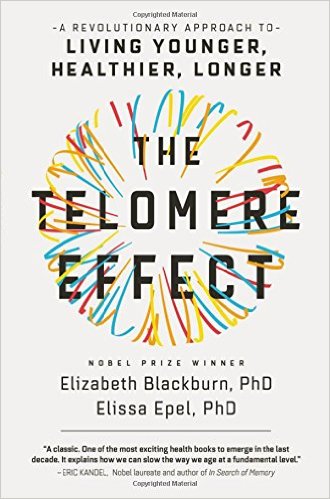Who doesn’t want to look young at sixty? That is when life really begins, right. But then it might be too late to wake up to that at sixty. In The Telomere Effect, the authors take us behind the science of ageing. While the ageing process is too complex to manipulate it with a few variables, these researchers have identified enzyme Telomerase as one of the key factors in how we age and how energetic and healthy we stay through old age.
Latest Health & Nutrition Book Reviews
Elizabeth Blackburn, PhD, received the Nobel Prize in Physiology or Medicine in 2009 alongside two colleagues for their discovery of Telomerase and Telomeres’ role in the aging process. She was elected president of the American Association for Cancer Research and is a recipient of the Albert Lasker Basic Medical Research Award, among many other awards.
Elissa Epel, PhD, is a leading health psychologist who studies stress, aging, and obesity. She is the director of UCSF’s Aging, Metabolism, and Emotion Center and is associate director of the Center for Health and Community. She has received awards from Stanford University, the Society of Behavioral Medicine, and the American Psychological Association.
The Telomere Effect: A Revolutionary Approach to Living Younger, Healthier, Longer
Authors: Dr. Elizabeth Blackburn, Dr. Elissa Epel
Hardcover: 416 pages
Publisher: Grand Central Publishing (January 3, 2017)
ISBN-10: 1455587974, 978-1455587971
The Telomere Effect Summary
You have been told this may times before. Eat well and at the right time. Don’t Smoke. Exercise. But when a Nobel Laureate tells you this is the answer to stay young and look young, you should sit up and take notice. There’s no better person to tell you this, if you care to live a healthy life. Elizabeth Blackburn discovered Telomerase enzyme that keep Telomeres healthy. Telomeres play a key role in protecting our genetic makeup, our DNA. They are the protective sheath that coat the ends of our DNA. As we age, the protective layer retracts and cells gradually die.
The author’s explain how telomeres are affected by our lifestyle choices and hasten the ageing process in an easy-to-understand language. They point to the current research on telomeres and claim that they know enough to pin-point the specific impact of types of food, and how sleep and exercise affect telomeres.
Although part of our health is encoded an dependent upon our genetic makeup, the authors say that there is still hope. You can reverse inherent and early damage to your telomeres and work toward a healthy old age. For example, sugared beverages are associates with shorter Telomeres and are therefore like to make you more disease prone.
But it is not just about what we eat and how much physically active we are. The authors share their findings about correlation between stress and social environment to the length of Telomeres. The authors advise on the kind of lifestyle people should aspire to keep themselves healthy and protect their DNA for future generations.
One of the objectives of the book was to translate complex scientific information and research and apply it to our day-to-day life. The authors do that well with by presenting the information in a simple manner, adding quizzes and using story like narrative. Most of the solutions in the book have been talked about before. The Telomere Effect gives you quantitative proof that these solutions are important and do affect you on many levels, including cellular.
Interview with the Dr. Blackburn and Dr. Epel
Additional Reading
